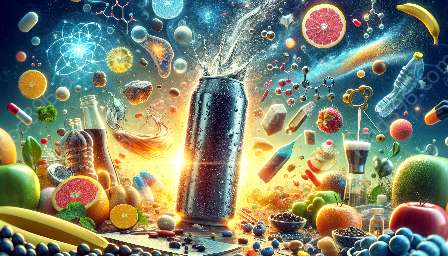If you’ve ever picked up an energy drink or any beverage in a store, you’ve probably seen preservatives in the list of ingredients. But what exactly are preservatives, and why are they added to our drinks? How do they impact the quality and health implications of energy drinks? This topic cluster will delve into the world of preservatives, their role in energy drinks, and the associated health implications, all while intersecting with beverage studies.
The Basics of Preservatives
Preservatives are substances added to food and beverages to help prolong their shelf life. They prevent spoilage and inhibit the growth of microorganisms such as bacteria and mold, thereby maintaining the product’s freshness and safety for consumption. In the context of energy drinks, preservatives play a critical role in preserving the product's quality and safety throughout its shelf life.
Common preservatives used in energy drinks include sodium benzoate, potassium sorbate, and citric acid. Each of these ingredients serves a specific purpose in preventing spoilage and maintaining the drink’s flavor and freshness over time.
The Role of Preservatives in Energy Drinks
Energy drinks typically contain a variety of ingredients, including water, sugars, caffeine, flavorings, and preservatives. The addition of preservatives ensures that the drink remains safe and palatable, especially considering that energy drinks are often stored for extended periods before consumption. Without preservatives, the risk of spoilage and contamination would increase, potentially leading to health risks for consumers.
For manufacturers, the use of preservatives allows them to produce energy drinks in larger quantities and distribute them over longer distances without compromising quality or safety. This is particularly important in the context of global markets where products may travel long distances before reaching consumers.
Preservatives and Health Implications
While preservatives are vital in maintaining the quality and safety of energy drinks, concerns have been raised about their potential health implications. Some preservatives, such as sodium benzoate, have been linked to health issues when consumed in large quantities, including allergic reactions and potential effects on DNA. Additionally, preservatives are often associated with a more processed and less natural product, raising concerns among health-conscious consumers.
Furthermore, the consumption of energy drinks, which often contain high levels of added sugars and caffeine, has been a topic of concern among health experts. The combined effects of preservatives, sugars, and caffeine on overall health have led to discussions about the need for greater regulation and awareness surrounding the ingredients used in these beverages.
Research within the field of beverage studies continues to explore the impact of preservatives on consumer health and behavior. This interdisciplinary approach allows for a deeper understanding of the complex relationship between preservatives, energy drinks, and overall health outcomes, contributing to the development of informed policies and guidelines.
Preservatives and Beverage Studies
In the realm of beverage studies, the role of preservatives extends beyond their chemical properties. Academics and researchers delve into the cultural, economic, and social implications of preservatives in beverages. This includes examining consumer attitudes and behaviors towards preservatives and their impact on the global beverage industry.
Moreover, beverage studies encompass the exploration of alternative preservation methods that align with consumer demands for natural and minimally processed products. This presents opportunities for innovation within the beverage industry, as companies seek to develop new preservation techniques that meet both safety requirements and consumer preferences.
Conclusion
Preservatives play a crucial role in ensuring the safety and quality of energy drinks and other beverages. While they are essential for preventing spoilage and maintaining product freshness, the potential health implications associated with certain preservatives underscore the importance of ongoing research and regulatory oversight within the beverage industry. By understanding the role of preservatives in energy drinks and their broader implications within the realm of beverage studies, stakeholders can work towards providing consumers with safe, high-quality products that align with evolving health and environmental concerns.

